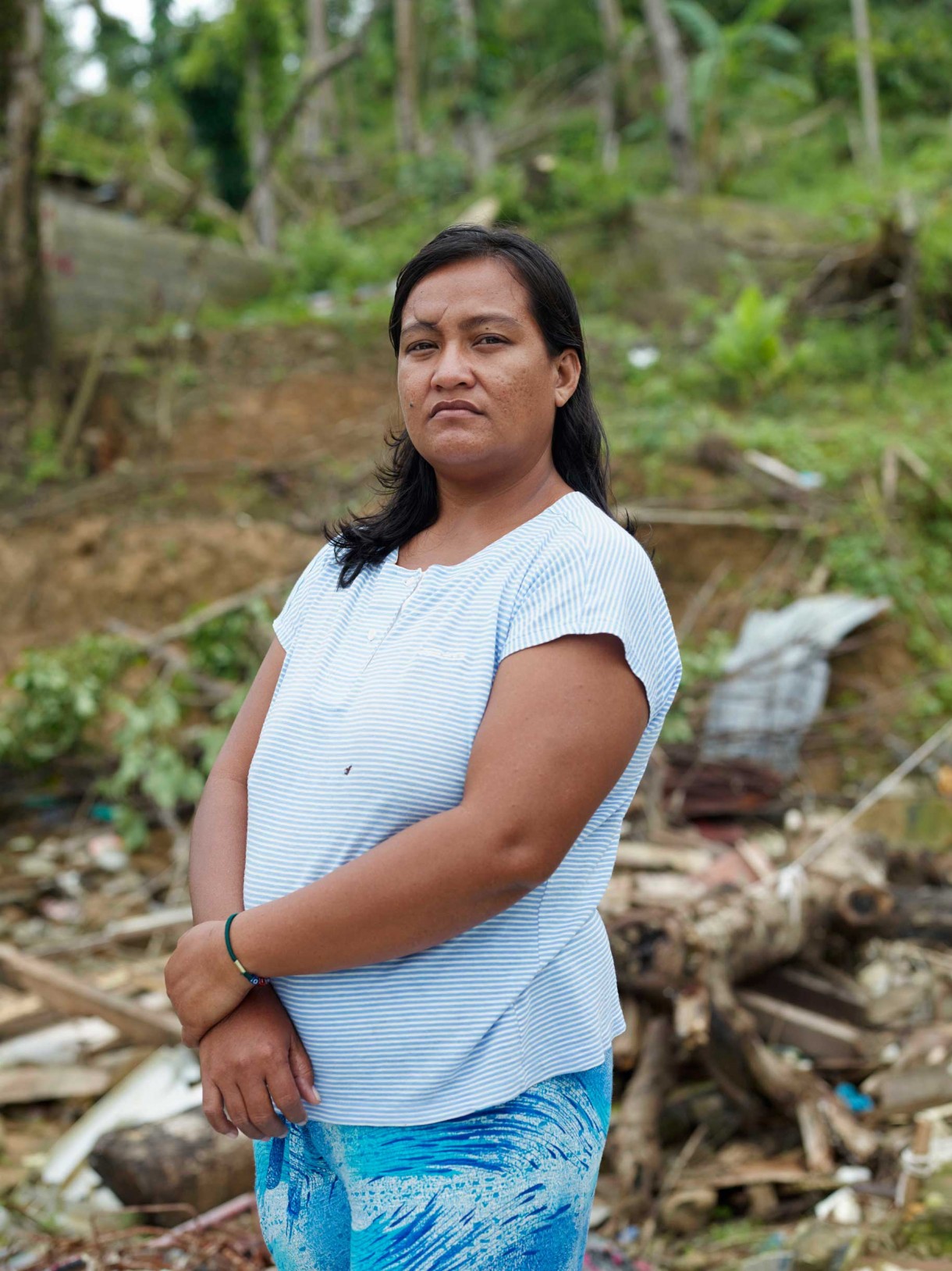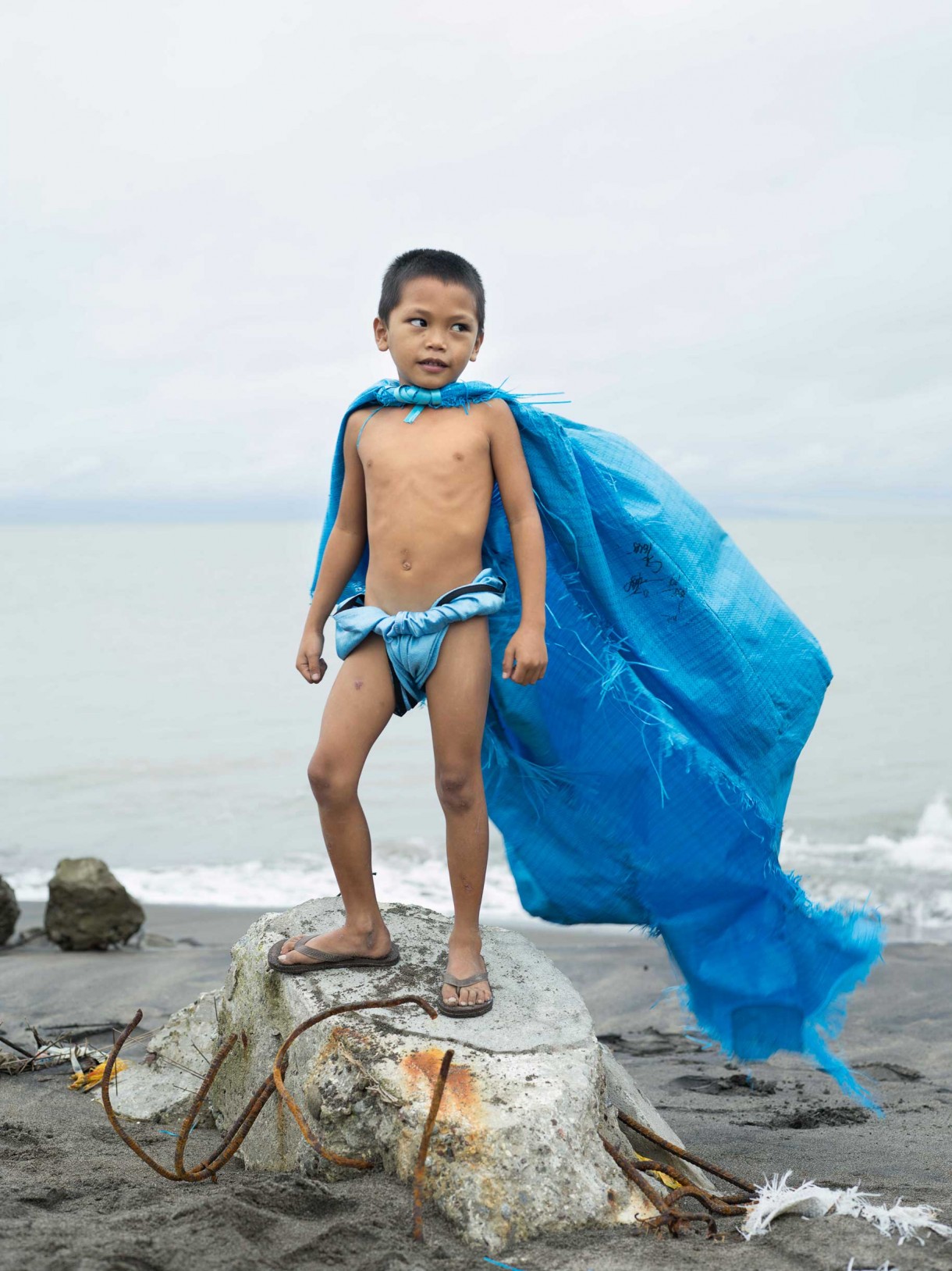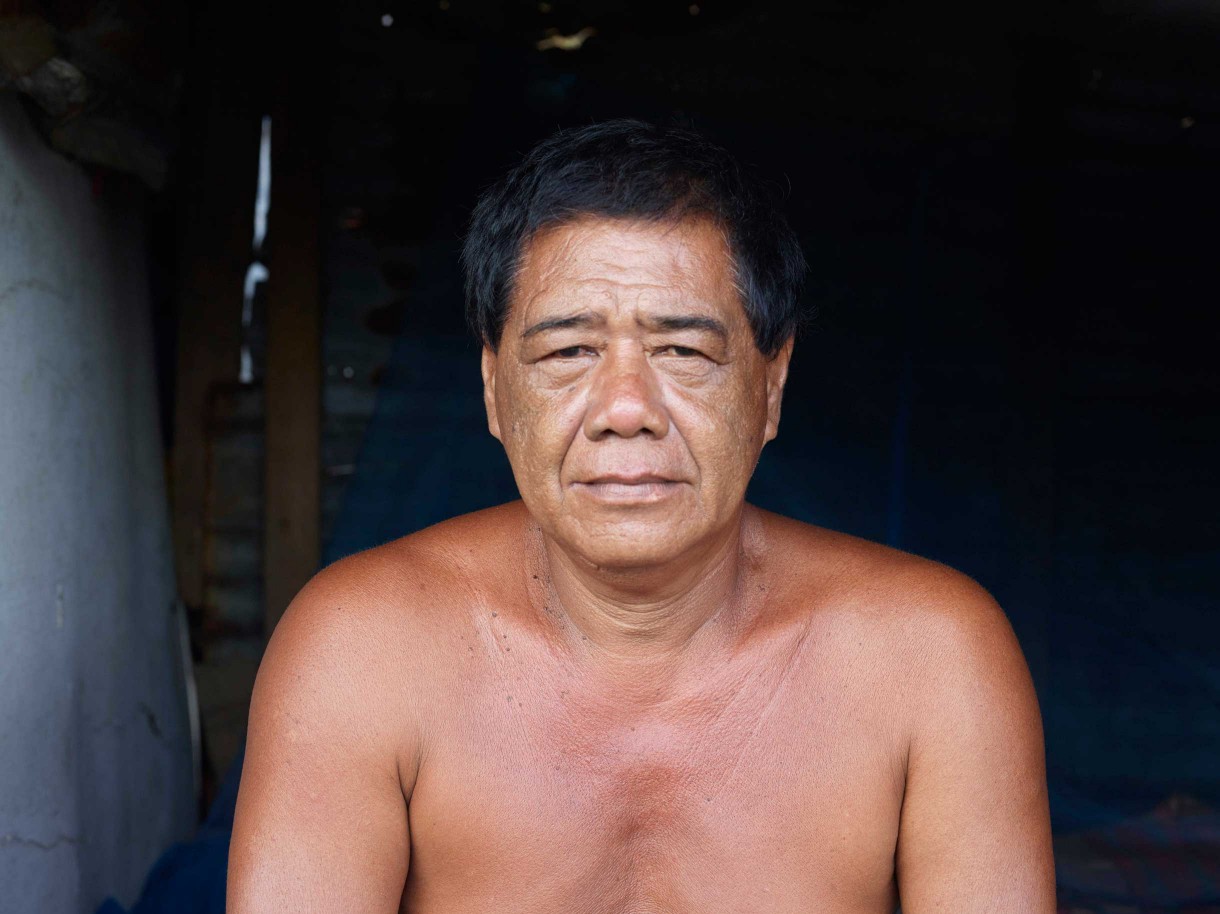Philippines typhoon survivors reflect on what it takes to begin again
 “I am grateful for my children. We are still here,” said typhoon survivor Vanessa Margallo, 34. “We are ok as long as we are all alive.” Photo: Simon Roberts/Oxfam
“I am grateful for my children. We are still here,” said typhoon survivor Vanessa Margallo, 34. “We are ok as long as we are all alive.” Photo: Simon Roberts/Oxfam
What does it mean to restart your life after disaster strikes? How do you rebuild your home when you’ve lost everything? When do you stop being afraid and start feeling hopeful again?
Exactly one year ago this weekend, Typhoon Haiyan (also called Yolanda) devastated the Philippines, killing more than 6,000 people and forcing millions from their homes. In the aftermath, storm survivors of all ages faced tough questions like these. And then, with the support of Oxfam and other aid groups, they began, together, the hard work of recovery. For many of the country’s poorest residents, the last 12 months have been a test of endurance as they struggle to rebuild their homes and make a living.
Oxfam’s Eleanor Farmer spoke to people from the hard-hit Tacloban region earlier this year about both their hardships and their hopes for the future. Excerpts of their responses are below.
Vanessa Margallo

“The water rose immediately. That’s why the houses here were totally damaged. … Some people went to higher places in the mountains and some were thrown away by the big waves and some dead bodies were carried down towards the ships over there. We went to find a higher place in the mountains and we stayed there, we waited for the level of the water to go down.
I lost my nephews and my niece – three of them. We only recovered one body, one nephew. My other nephews were afraid to go to school because they don’t have anyone to accompany them like they did before the typhoon, because they used to all go to school together. My children said ‘Mom, I don’t want to go to school again because my cousins are not with me.’ They were classmates, too.
After the typhoon we built a temporary house here. As a mother, I don’t want to go back [to our former home], because what will happen if the waves rise again, if the strong rain comes again? Maybe it will happen again. My children are very afraid it will happen again.
Oxfam played a big role helping us to move on. They provided clean, safe water and containers, latrines, and the hygiene kits. We were happy because a lot of things were inside there.
I am grateful for my children, my husband, my mother, my father. They are still here. We are OK as long as we are all alive. That’s why I think I’m living now. That’s why I keep moving and living. I thank god I survived. I’m thankful my family is still complete. That’s why I will continue to live.”
Gerard Bito

“My favorite superhero is Superman. He is the master of all superheroes. I would like to be superman because he flies so fast. I would fly to Eastern Samar (Philippines) and I could fly away if there was a storm. I like to play on the beach with my friends. We play paper airplanes and we like to portray small houses and pretend we are living in the sea. We make a circle out of sand and build small houses. The adults tell us to stop playing. Our houses are not easily destroyed.”
Jim Acosta

“We are helping each other to start rebuilding our lives. In fact, now my child has gone fishing. If the clearing is done and the ships are pulled away and the road is completely clear so we can travel around this area, our business might turn into something.
I want to have my livelihood back, to go fishing, to have my boat back and the machines that we are going to use in fishing so that we can have some extra income and start over again.
I [had] imagined that someday this kind of big storm might come, but we didn’t expect that it would come this soon. We evacuated when the water was already high and the ship had come to this area. The day before Yolanda, I was observing the weather and listening to the radio and preparing the things that we would need if we needed to evacuate.
Maybe there will be some big storms in 30 years. We are not that afraid any more. I’m not afraid, the waves are not that strong, the wind is not that strong, and some mountains can cover the strong winds, so I’m not afraid. I want to live here and so do my children. I will stay here with my family, because I was born here. I’m not going anywhere.”
Jennifer and Rose Pablo

Jennifer: “Our house [was] totally destroyed; there [was] nothing left except the floor. After, we started rebuilding our house. We started with the wall, but we were missing some materials because my husband doesn’t have a source of income and after the typhoon we haven’t got enough money to rebuild our house.
This tarpaulin is very important to us because rain or shine it is useful. When we are eating, it’s really hard to eat in the tent because it’s really warm inside and when it rains the floor gets wet. The tarpaulin is really helpful and that’s why we have built a small temporary house so that when we eat we have somewhere we can eat which is dry and cool.
We want a stronger house, a stronger house, a stronger house. We want the house to have a strong foundation so we don’t feel nervous or get scared when there is a typhoon.”
Rose: “I am very happy that I am now staying in a house, and also we will not be afraid anymore if there are strong winds because we are living here.
I wanted to stay here because this is where I was born and this is where my parents started their lives and this is also where my grandmother died. If there is another typhoon we will go to the nearest school and stay there overnight, so in case there is a flood we will be able to survive again just like the last time.
I like it now because there are more houses, and people do gardening, and there [are] a lot of people helping us rebuild. I am looking forward to playgrounds and games for the kids so everyone will be happy, not only me.”